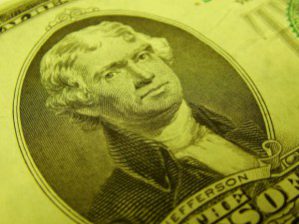Owning your own home allows you to create a stable living environment for your family, personalize your living space and build equity. With tax season around the corner, homeowners can argue that the tax benefits are one of the biggest perks of owning their own property.
Interest & Points
When looking at an amortization schedule of your mortgage, the majority of your first years’ payments are towards interest, not principal. The benefit is that you can deduct that interest the year that it is paid, within certain limits. Homeowners can deduct up to $1 million in interest payments for a first or second home.
According to Realtor.com®, Americans save around $100 million every year by deducting mortgage interest on their tax returns.
Homeowners who pay points, or origination fees, on their home purchase or refinance can also deduct those points on their tax returns. A one percent fee on a $100,000 loan equals one point, or $1,000. Taxpayers can deduct the entirety of points in the year they were paid on a purchase. For refinance loans, points must be deducted as an amortization over the period of the loan.
Private Mortgage Insurance (PMI)
If you borrow more than 80 percent of your home’s purchase price, it is very likely that you are required to pay for private mortgage insurance. If you purchased your home on or after January 1, 2007, those PMI premiums are tax deductible.
The amount of the deduction, though, depends on your income. If your adjusted gross income (AGI) is more than $100,000, the deduction amount begins to phase out. For married taxpayers filing separately, the phase out begins at more than $50,000 AGI. The deduction is reduced by 10 percent for every $1,000 you make over $100,000 and phases out completely by $109,000 AGI.
Property Taxes
Property taxes are also deductible, though homeowners may only deduct the amount of property tax actually paid to their city or town for the year, which may not necessarily be the amount paid to escrow. The deductible amount can not include any other city/county fees that may have been on the same bill as property taxes.
Selling Your Home
If you have owned and occupied your home for at least two of the past five years, you may earn up to $500,000 (for married taxpayers) or $250,000 (for single taxpayers) on the sale of your home and pay no federal income tax.
Energy Efficient Materials
Home improvements that go towards upgrading energy efficiency can also be deducted. This tax credit is applied as a direct reduction to how much tax homeowners owe, not just a reduction on taxable income. 10 percent of energy-efficient materials used for an upgrade can be used as a tax credit, up to $500.
At Compass, we are not tax professionals. We always suggest you meet with a Certified Tax Professional before filing your taxes to make sure you are deducting these items properly in accordance with IRS regulations and to ensure you get the highest tax return possible on your home.
Tax deductions are one of the many benefits of being a homeowner. If you are looking to make your first home purchase, download our Mortgage 101 Handbook for access to tons of information on the home buying and mortgage process.
